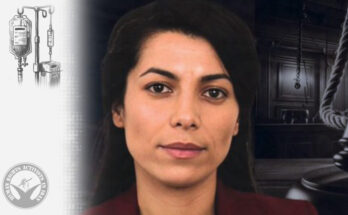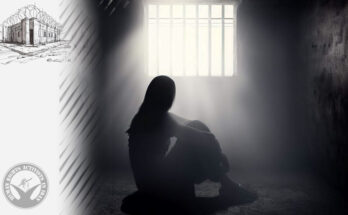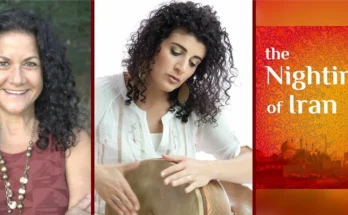![]() By Maryam Sinaee
By Maryam Sinaee
Source: Iran International

On the International Day for the Elimination of Violence against Women, civil society groups emphasized that serious violations in Iran is deeply ingrained and systematic.
The Women’s Revolution, a coalition of rights activists advocating for social and economic equality, modernism, and the separation of religion and state, highlighted the roots of women’s rights violations in the laws and governance of the Islamic Republic.
These violations include granting men the right to divorce and child custody, obliging women to provide marital relations on demand, endorsing child marriage, imposing death sentences on women for extramarital relationships, idealizing traditional gender roles, restricting women’s entry to stadiums, and imposing limitations on their education and professions.
“We, the signatories of this statement, know very well that women will never be freed from violence and this cycle of sexism will continue given the domination of a gender apartheid system. But we believe that the Woman, Life, Freedom revolution has sparked the hope in everyone’s hearts that the end of this tragedy is conceivable,” the statement said.
In a statement which it published on Facebook, the banned Iranian Writers’ Association (Kanoon-e Nevisandegan-e Iran), also said violation of women’s rights in the Islamic Republic is “systematic”.

The Writers’ Association said in their statement that imposing hijab on Iranian women by the Islamic government after the 1979 revolution was a first step that was quickly followed to embrace many other areas of their lives including laws, family, work, and education. These, the statement said, revealed themselves in deepening of women’s oppression and revealed themselves as domestic violence, child marriage, and honor killings, and other forms of violence such as acid attacks.
“This misogyny revealed its ultimate barbarism against the movement that began with the Woman, Life, Freedom slogan,” the statement said and warned that the “dominance of reactionary cultural and religious elements” has elevated violence against women and their oppression to “disastrous new dimensions”.
Many allege that the Islamic Republic has given free rein to reactionary religious groups for violence against women such as mass poisoning of female students that began in November last year and continued for several months.
Authorities denied any responsibility or involvement in the attacks that affected hundreds of schools and thousands of girls across the country for months but did not take action to find and arrest those behind the attacks.
Authorities have also stepped-up pressure on women’s rights activists who are increasingly being arrested on various pretexts and heavily sentenced in unfair trials to silence them. Women’s rights activists are also increasingly being subjected to violence in prisons.
In a letter from Evin Prison in August, Narges Mohammadi who won the Nobel Peace Prize in November warned about escalating systematic violence against female prisoners and revealed disturbing details of physical harassment, abuse, and assault inflicted on women inmates in the months leading up to the anniversary of the nationwide Woman, Life, Freedom protests.
In a resolution adopted Thursday, the European Parliament strongly condemned the latest attacks against women, girls, and women’s rights defenders in Iran and called on the Iranian leadership to immediately stop the systemic oppression and all discrimination against women and girls, including mandatory veiling, and to withdraw all gender discriminatory laws.




